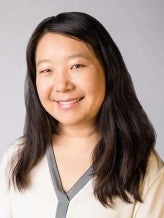Materials prediction is the ultimate solution for ending blind experimental search within an
expansive material parameter space. First-principles theory entirely based on quantum mechanics
without prior input parameters is the perfect tool for new material design. In order to predict exotic
quantum materials and out-of-equilibrium processes, many-body physics and quantum kinetic theory are
needed to bridge with first-principles methods.
In this talk, I will discuss our past development on theory and numerical codes of solving Bethe-Salpeter
equation, for accurate prediction of optical excitation and radiative and nonradiative exciton
recombination. We will show examples of using these methods to study materials in
photoelectrochemical application and spin defects in two-dimensional systems in quantum information
science.
Next, I will show our recent method development on real-time quantum dynamics with coupled spins,
electrons, photons and phonons based on first-principles density-matrix approach. This method will offer
new and unbiased insights for spin relaxation and decoherence in general systems, and determine design
rules for new quantum materials with ideal physical properties for spintronics and quantum information
science.

Yuan Ping received her B.Sc. degree from University of Science and Technology of China in 2007 and her Ph.D. from UC Davis under Giulia Galli (currently at U. Chicago) in 2013. She was a materials postdoctoral fellow in JCAP at Caltech from 2013 to 2016, under William Goddard III. In 2016 summer, she joined the faculty at UC Santa Cruz as an assistant professor in Chemistry department and affiliated professor in Physics department. Ping’s research focus on many-body perturbation theory with efficient numerical methods for electronic excitation and exciton recombination, and open quantum dynamics for spin relaxation from first-principles for applications in quantum information science and energy conversion. Ping is a recipient of Hellman fellows in 2018, Nature Research award in 2020 and Airforce YIP award in 2021.
